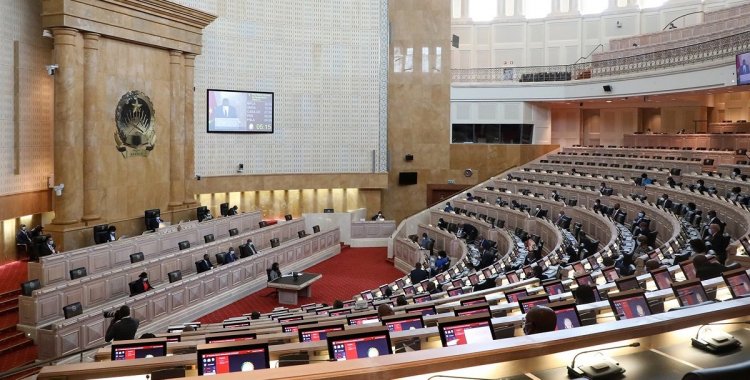The 2022 State Budget, which estimates revenues and fixes expenditures of 18.7 billion kwanzas, was discussed by the specialized working committees of the parliament, having approved a joint report on the specialty before its return to the plenary.
For 2022, the authorities forecast an economic growth of the Gross Domestic Product (GDP) of 2.4 percent, compared to a moderate expansion of 0.2 percent for 2021, with the largest contribution from the non-oil sector, with 3 .1 percent.
The proposal comprises 36.9 percent of primary fiscal expenditure for the social sector, which corresponds to 18.6 percent of total expenditure, an increase of 24.7 percent compared to 2021.
For the oil sector, growth is expected in the order of 1.6 percent, based on crude production of 1.147 million barrels per day, with a reference price of 59 dollars per barrel.
In the discussion of the OGE, the parliamentary group of UNITA, the biggest opposition party, considered the proposal "essentially electoralist and that ends the current political cycle with strong signs of corruption".
"We are, without a shadow of a doubt, facing an essentially electoral budget that ends the current political cycle with strong signs of corruption, considering the monstrous amount in a context in which public procurement takes place in a simplified manner, that is, there is a direct award to friends and partners to the detriment of the country", said Adalberto Costa Júnior, from UNITA, in the plenary session in which the document was discussed in general.
In turn, the first vice-president of the parliamentary group of the Popular Movement for the Liberation of Angola (MPLA), Manuel da Cruz Neto, said that the executive intends to act with great vigor through the Integrated Program of Intervention in Municipalities (PIIM) to increase the autonomy of the country's 164 municipalities, within the scope of the administrative deconcentration and decentralization policy.
André Mendes de Carvalho "Miar", from the Comprehensive Convergence for the Salvation of Angola - Electoral Coalition (CASA-CE), considered it imperative that the Government declare a state of emergency for the southern region of the country, which has been affected by a severe drought for several years.
Benedito Daniel, from the Social Renewal Party, considered that the priority should not only be the control of the covid-19 pandemic.
Lucas Ngonda, from the National Front for the Total Independence of Angola (FNLA), said that the weaknesses of the Angolan economy already identified in previous budgets "are the same that are worsening as time passes and Angolan society manifests a a certain desperation".
Parliament votes this Tuesday State Budget 2022
The draft law that approves Angola's 2022 State Budget (OGE) will this Tuesday the final vote at the third extraordinary plenary meeting of the parliament, whose sole point is the vote on the document.







